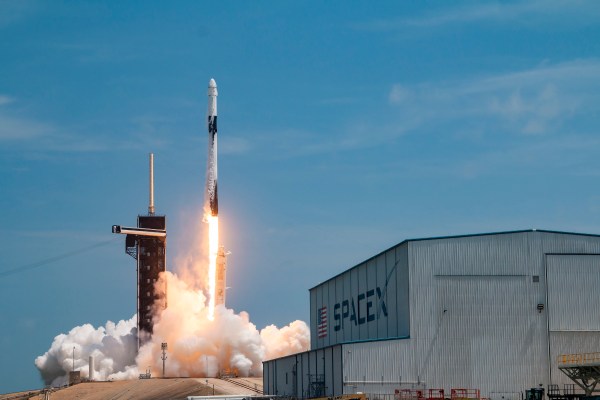SpaceX continues to make reuse look routine. Shortly before noon ET today, the company launched another cargo resupply capsule to astronauts on the International Space Station (ISS) using rocket components that have visited space many times before.
The Falcon 9 booster that lifted off from NASA’s Kennedy Space Center in Florida this morning (and landed on a drone ship in the Atlantic Ocean shortly thereafter) had flown on four previous missions. Meanwhile, the Cargo Dragon capsule that’s currently en route to resupply the orbital lab has seen space three times before.
Liftoff! pic.twitter.com/alTnpRy2Bu
— SpaceX (@SpaceX) June 5, 2023
Packed inside the Dragon is around 7,000 pounds of science and research investigations, station supplies and hardware. That includes a final pair of ISS Roll Out Solar Array (IROSA) solar panels that are meant to replace the station’s aging solar power supply. Four IROSA panels have already been installed on the ISS.
Altogether, NASA says that the six IROSAs will boost the station’s energy production capabilities by 20-30% — enough to ensure the ISS can remain operational until its decommissioning in 2030. The final pair of panels will be installed by astronauts later this month.
The Dragon is also delivering a scientific investigation for the European Space Agency, as well as a series of projects and CubeSats from American and Canadian university researchers. While science is arguably the reason for the station’s existence, the astronauts are likely most highly anticipating the fresh food that’s onboard the capsule — including cheese, cherry tomatoes, blueberries and apples.
The capsule will autonomously dock at the ISS on Tuesday around 5:50 AM ET. It will remain docked at the station for around three weeks, during which time astronauts will fill it back up with return cargo. The Cargo Dragon will be joining a Crew Dragon capsule called Endeavor that’s currently docked to another port on the station. The Endeavor ferried four astronauts to the station back in March.
This marks the 36th Falcon 9 mission so far this year and the 28th time SpaceX has sent cargo to the ISS. The company’s been conducting resupply missions on behalf of NASA as part of its Commercial Resupply Services contract.
